A restful night’s sleep is the cornerstone of physical health, mental clarity, and emotional well-being. Yet, millions of people struggle with insomnia, restless nights, or waking up feeling unrefreshed. While stress and screen time often take the blame, lesser-known habits might be sabotaging your sleep without you even realizing it. In this article, we’ll uncover six surprising behaviors that could be keeping you awake—and how to fix them.
Jumping Into Bed Immediately After Your Day (And Why It Harms Sleep Quality)
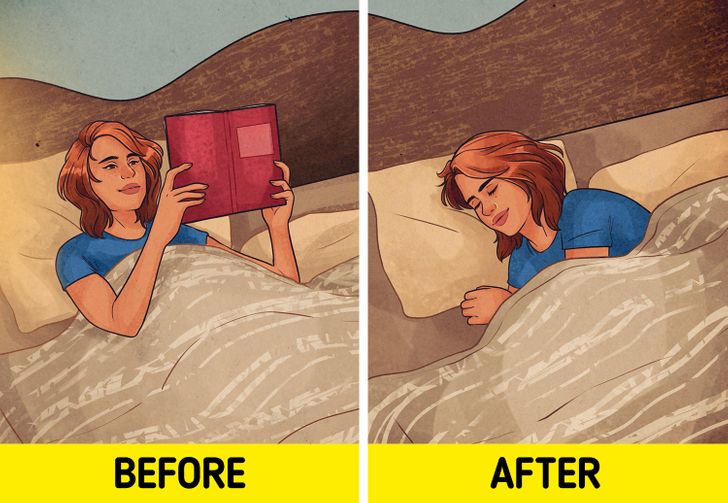
You might think collapsing into bed after a long day is the best way to unwind, but rushing to sleep without a wind-down routine can backfire. Your brain needs time to transition from “active mode” to “rest mode.” Skipping this step keeps cortisol (the stress hormone) elevated and suppresses melatonin production, the hormone responsible for regulating sleep.
The Fix:
- Create a 30–60 minute pre-sleep ritual. Dim the lights, read a book, or practice mindfulness meditation.
- Avoid screens during this time—blue light from devices disrupts melatonin production. Studies from the National Sleep Foundation emphasize the importance of screen-free zones before bed.
Drinking Black Tea Before Bed: How Caffeine Sneaks Into Your Night
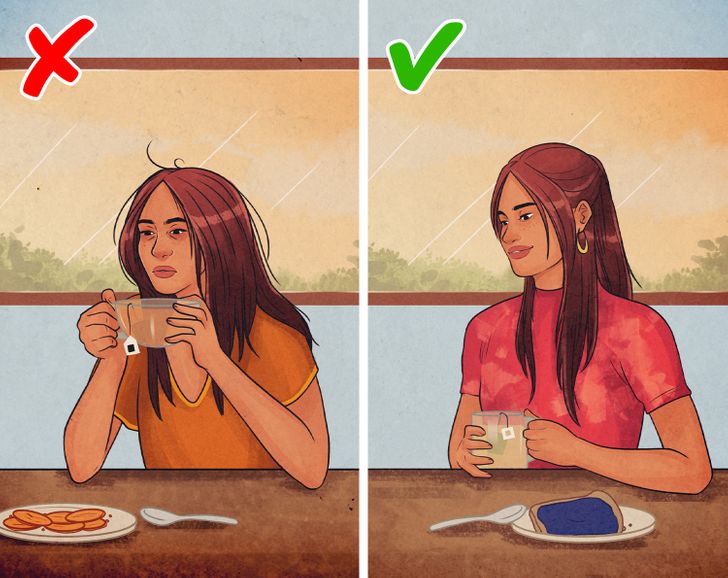
While herbal teas like chamomile are sleep-friendly, black tea contains caffeine—even small amounts can linger in your system for 6–8 hours. A cup of black tea before bed might seem harmless, but it can delay REM sleep and fragment your sleep cycle.
The Fix:
- Swap black tea for caffeine-free alternatives like valerian root or passionflower tea, which are linked to improved sleep quality.
- Check labels: Even “decaf” teas may contain trace caffeine.
According to Harvard Medical School, caffeine’s half-life means 50% of it remains in your bloodstream 5 hours after consumption.
Sleeping Under the Wrong Blanket: How Material and Weight Impact Rest
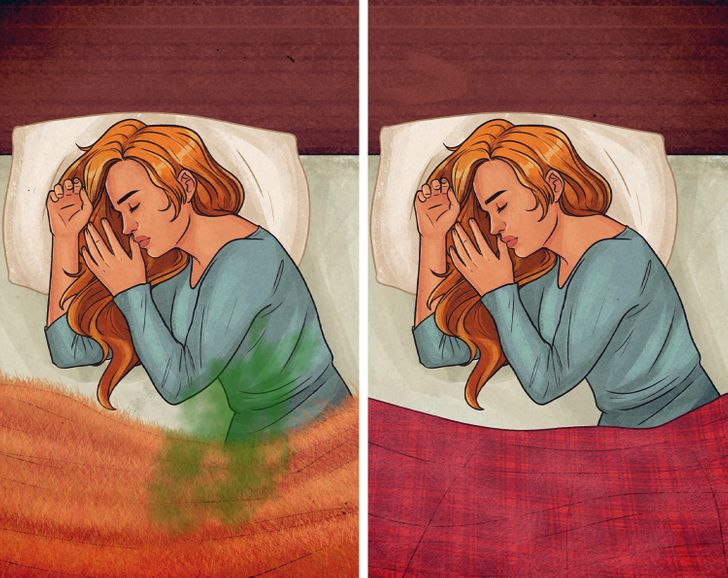
Your blanket isn’t just for comfort—it plays a critical role in thermoregulation. Heavy blankets can trap heat, raising your core body temperature and disrupting sleep. Conversely, lightweight or synthetic materials might leave you shivering, triggering wakefulness.
The Fix:
- Opt for breathable, natural fabrics like cotton or bamboo.
- Consider a weighted blanket (if you don’t overheat) for anxiety relief. The Sleep Foundation highlights their benefits for reducing insomnia.
Evening Gym Sessions: Why Late Workouts Might Keep You Up
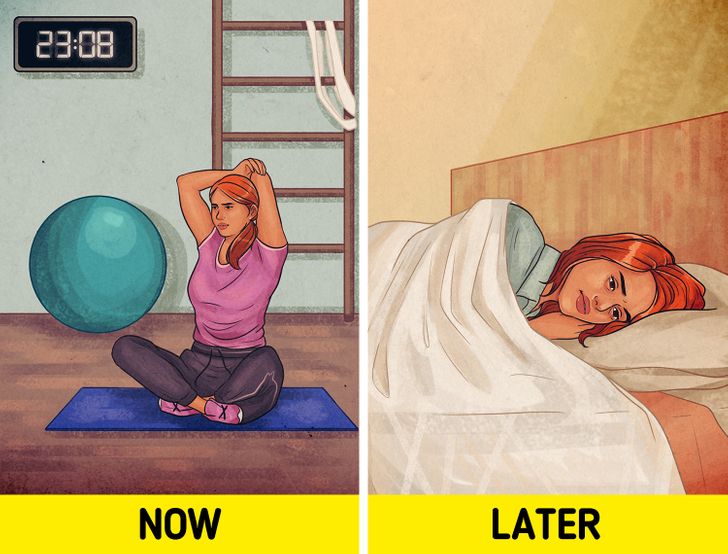
Exercising too close to bedtime can spike adrenaline and body temperature, both of which interfere with falling asleep. While morning workouts align with your circadian rhythm, evening sessions may leave you tossing and turning.
The Fix:
- Finish vigorous workouts at least 3 hours before bed.
- Swap HIIT for yoga or stretching in the evening. Research from the Mayo Clinic shows gentle exercise can improve sleep quality.
Skipping Breakfast: The Link Between Morning Meals and Sleep Cycles
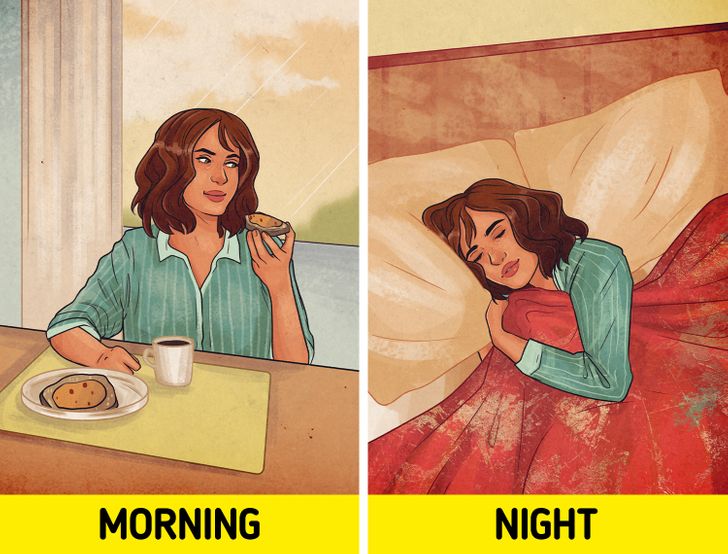
Skipping breakfast might seem unrelated to sleep, but irregular eating patterns confuse your body’s internal clock. Breakfast kickstarts your metabolism and stabilizes blood sugar, which indirectly regulates sleep hormones like melatonin.
The Fix:
- Eat a protein-rich breakfast within an hour of waking.
- Avoid late-night snacking to prevent digestive discomfort.
A study in Nutrients found that consistent meal timing improves sleep duration and quality.
Wearing Pajamas to Bed: How Fabric Choices Affect Sleep Temperature
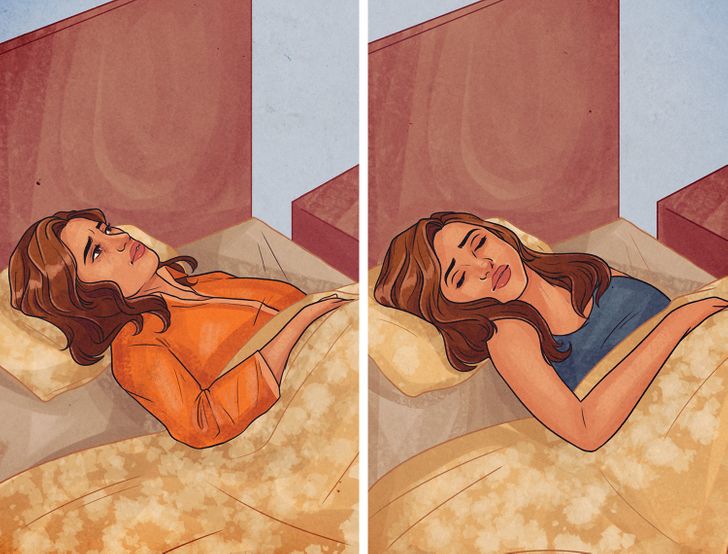
Your pajamas might be cozy, but synthetic fabrics like polyester can trap heat and moisture, leading to night sweats. Tight-fitting sleepwear can also restrict circulation, causing discomfort.
The Fix:
- Choose loose, moisture-wicking fabrics like organic cotton or bamboo.
- Consider sleeping nude: A University of Amsterdam study found it lowers body temperature and improves sleep efficiency.
Final Tips for Optimizing Your Sleep Environment
- Light Control: Use blackout curtains to block external light.
- Noise Reduction: Try white noise machines to mask disruptive sounds.
- Mattress Quality: Replace your mattress every 7–10 years for proper spinal alignment.
Conclusion: Small Changes, Big Impact
Breaking these habits won’t just improve your sleep—it’ll enhance your energy, focus, and overall health. Start with one or two adjustments, track your progress with a sleep diary, and gradually incorporate more changes. For deeper insights, explore the American Academy of Sleep Medicine or consult a sleep specialist.
By addressing these hidden culprits, you’ll be on your way to waking up refreshed and ready to conquer the day. Sweet dreams!









Leave a Reply